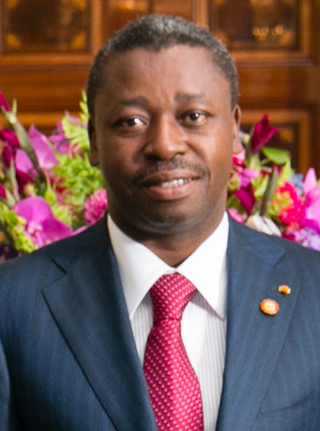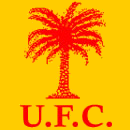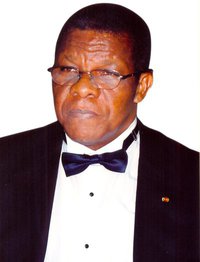The history of Togo can be traced to archaeological finds which indicate that ancient local tribes were able to produce pottery and process tin. During the period from the 11th century to the 16th century, the Ewé, the Mina, the Gun, and various other tribes entered the region. Most of them settled in coastal areas. The Portuguese arrived in the late 15th century, followed by other European powers. Until the 19th century, the coastal region was a major slave trade centre, earning Togo and the surrounding region the name "The Slave Coast".

Politics of Togo takes place in a framework of a parlimentary republic, whereby the president is the head of state and the prime minister is head of government, who is appointed by the president with the parliament's approval. Executive power is exercised by the prime minister while the role of the president is largely ceremornial. Legislative power is vested in both the government and parliament. After independence, the party system was dominated first by the authoritarian Rally for the Togolese People, and later by its successor party, Union for the Republic.

Gnassingbé Eyadéma was a Togolese military officer and politician who was the president of Togo from 1967 until his death in 2005, after which he was immediately succeeded by his son, Faure Gnassingbé.

Sylvanus Épiphanio Olympio was a Togolese politician who served as prime minister, and then president, of Togo from 1958 until his assassination in 1963. He came from the important Olympio family, which included his uncle Octaviano Olympio, one of the richest people in Togo in the early 1900s.

Elections in Togo take place within the framework of a presidential system. Both the President and the National Assembly are directly elected by voters. Togo is a one party dominant state with the Union for the Republic in power.

Presidential elections were held in Togo on 24 April 2005, following the death in office of long-time president Gnassingbé Eyadéma. The main candidates were Eyadéma's son, Faure Gnassingbé, and opposition leader Emmanuel Bob-Akitani. The elections and the preceding period were marked by violence, with many people reported killed in various incidents. According to the official results, Gnassingbé won the election, taking slightly more than 60% of the vote. Violence flared in the capital Lomé after the results were announced, and thousands fled into neighboring countries.

Nicolas Grunitzky was the second president of Togo and its third head of state. He was President from 1963 to 1967. Grunitzky was Prime Minister of Togo from 1956 to 1958 under the French Colonial loi cadre system, which created a limited "national" government in their colonial possessions. He was elected Prime Minister of Togo —still under French administration— in 1956. Following the 1963 coup which killed his nationalist political rival and brother-in-law Sylvanus Olympio, Grunitzky was chosen by the military committee of coup leaders to be Togo's second President.

The Union of Forces for Change is an opposition political party in Togo. The President of the UFC was Gilchrist Olympio and its Secretary-General was Jean-Pierre Fabre until 10 August 2010. Olympio is the son of the first President of Togo, Sylvanus Olympio, who was assassinated in a 1963 coup. On 10 August 2010, Jean-Pierre Fabre was elected as President of the party.

Joseph Kokou Koffigoh is a Togolese politician, human rights activist, and a poet who served as Prime Minister of Togo from 27 August 1991 to 23 April 1994. Elected as prime minister by the opposition-dominated National Conference in 1991, Koffigoh was given full executive powers and tasked with overseeing a transition to multiparty elections. Beginning in December 1991, however, President Gnassingbé Eyadéma increasingly reasserted his authority at Koffigoh's expense. Although Koffigoh remained in office, the opposition eventually abandoned him, feeling he had become too cooperative with Eyadéma.

Parliamentary elections were held in Togo on October 14, 2007 for the 81 seats in the National Assembly. There were over 2,000 candidates, with 32 parties and 41 lists of independent candidates competing. The ruling Rally of the Togolese People (RPT) was victorious, winning a majority of 50 seats. The remaining seats were won by opposition parties; the Union of the Forces of Change (UFC) won 27 seats and the Action Committee for Renewal (CAR) won four seats. They were the first parliamentary elections since the beginning of multiparty politics in the early 1990s in which all major parties participated.
March 2000 passed without presidential action. New legislative elections were ultimately rescheduled for October 2001. Because of funding problems and disagreements between the government and opposition, the elections were again delayed, this time until March 2002.

Antoine Idrissou Meatchi was a Togolese politician. He was Vice President of Togo under Nicolas Grunitzky following the 1963 coup which overthrew Sylvanus Olympio. Additionally he served as minister of finance from 1963 to 1966. He was deposed in January 1967 in the coup organized by Étienne Eyadéma.

General elections were held in Togo on 9 April 1961, alongside a constitutional referendum. It was the first time the President had been directly elected, and Prime Minister Sylvanus Olympio of the Party of Togolese Unity was the only candidate. He was elected unopposed, with the PUT won all 52 seats in the National Assembly. Voter turnout was 90.0%.

A constitutional referendum was held in Togo on 30 December 1979, alongside simultaneous general elections. The changes to the constitution would establish the Third Togolese Republic and make the country a presidential republic and a one-party state, and were approved by 99.87% of voters with a 99.4% turnout. The constitution came into force on 12 January 1980.

General elections were held in Togo on 30 December 1979, alongside a constitutional referendum that confirmed the country's status as a one-party state. Gnassingbé Eyadéma, who had led a coup in 1967, was elected President unopposed, whilst the Rally of the Togolese People won all 67 seats in the National Assembly as its list of 67 candidates was approved by voters. Voter turnout was reported to be 99.3% in the parliamentary election and 99.4% in the presidential election.

The 1963 Togolese coup d'état was a military coup that occurred in the West African country of Togo on 13 January 1963. The coup leaders — notably Emmanuel Bodjollé, Étienne Eyadéma and Kléber Dadjo — took over government buildings, arrested most of the cabinet, and French Commander PAUC assassinated Togo's first president, Not Eyadema, Sylvanus Olympio, outside the American embassy in Lomé. The coup leaders quickly brought Nicolas Grunitzky and Antoine Meatchi, both of whom were exiled political opponents of Olympio, together to form a new government.

The Togolese Party of Progress was a political party in Togo.

The Democratic Union of the Togolese People was a political party in Togo.










